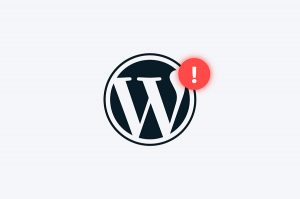Let us examine the wordpress wp_send_json_error in detail and how to use it with the assistance of our WordPress Support services at Bobcares.
WordPress wp_send_json_error

wp_send_json_error( mixed $data = null, int $status_code = null, int $options )Return’s a JSON answer to an Ajax request to indicate failure.
If the $data parameter is a WP Error object, the errors within it are processed and output as an array of error codes and messages. The remaining types are output without further processing.
Parameters
Below given are the parameters; wordpress wp_send_json_error:
mixed Optional$data- Data to encode as JSON, then print and die.
- Default: null$status_code int Optional
- The HTTP status code to output.
- Default:
int Optional.null$options - Options to be passed to
. Default 0.json_encode()
The success key in the response object will always be false. If the function receives anything in the $data parameter, it will encode it as the value for a data key.
How to use wp_send_json_error in WordPress?
wordpress wp_send_json_error:
wp_send_json_error( 'Error: Invalid data!' )The code given above will repeat the following JSON string:
{"success":false,"data":"Error: Invalid data!"}The advantage of wp_send_JSON_error() is that the parameter can also be a WP Error object. In contrast to wp send JSON success(‘Everything is OK.’), which returns the following JSON string:
"success":true,"data":"Everything is OK".However, if there is an error, the object is returned.
However, when we examine the JS code, we may see that we did not properly handle the JSON response.
Actually, if everything goes well, we can return HTML instead of $(‘#submitYouTubeForm’). However, with the JSON response, we do not have HTML but rather a JSON answer.
If we don’t get the JSON string, use console.log(response). We can consider either utilizing JSON for all responses or, instead of using wp send wordpress wp_send_json_error, JSON error(), simply returning a plain HTML error message and using die().
[Need assistance with similar queries? We are here to help]
Conclusion
To conclude we have learned more about the wordpress wp_send_json_error, the various Parameters, and how to use the JSON error in WordPress with the support of our WordPress support services.
PREVENT YOUR SERVER FROM CRASHING!
Never again lose customers to poor server speed! Let us help you.
Our server experts will monitor & maintain your server 24/7 so that it remains lightning fast and secure.







0 Comments